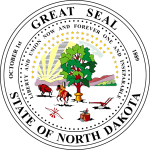 Legislative Overview ~ March 07, 2025
Legislative Overview ~ March 07, 2025
Today marked the first floor sessions following Crossover in the North Dakota 69th Legislative Session. For those unfamiliar with the term, Crossover signifies the halfway point of the session and represents a crucial milestone in the legislative process.
Crossover is the deadline by which all bills must be addressed in their chamber of origin. For instance, a bill that started in the Senate must have been heard in Committee, gone through Appropriations if funding was required, and brought to the Senate floor for a vote to either pass or fail. Following Crossover, these Senate-approved bills now move to the House, where they undergo a similar process. The same is true in reverse for bills that originated in the House.
From this point forward, any bills that successfully pass both chambers will be sent to the Governor for signature or veto. If signed, they are then filed with the Secretary of State’s office to become law.
Here’s a summary of what took place during today’s floor sessions before lawmakers adjourned for the weekend:
51 Bills Passed in the Senate and awaiting Governor’s Signature: HB1030, HB1031, HB1033, HB1035, HB1039, HB1040, HB1043, HB1045, HB1051, HB1055, HB1056, HB1062, HB1065, HB1069, HB1070, HB1072, HB1074, HB1075, HB1075, HB1077, HB1079, HB1081, HB1082, HB1083, HB1084, HB1085, HB1087, HB1090, HB1108, HB1115, HB1116, HB1120, HB1124, HB1128, HB1133, HB1135, HB1148, HB1173, HB1178, HB1180, HB1211, HB1212, HB1215, HB1228, HB1261, HB1281, HB1293, HB1334, HB1357, HB1397, HB1403, & HB1520. Those that failed include: HB1107, HB1179, & HB1509.
10 Bills Passed in the House and awaiting Governor’s Signature: SB2043, SB2046, SB2050, SB2053, SB2056, SB2067, SB2077, SB2080, SB2086, SB2145 + HCR3033 & SCR4021. Those that failed include: HCR3032.
The Bills we are tracking regarding the business world include:
SB2080: https://ndlegis.gov/assembly/69-2025/regular/documents/25-8093-01000.pdf
This Bill proposes amendments to North Dakota’s child support laws to enhance the efficiency of establishing and enforcing child support obligations. Key changes include allowing the clerk of court or child support agency employees to notify individuals of payment arrears via first-class mail, accompanied by an affidavit of service. Additionally, the bill permits the use of declarations instead of affidavits when confirming a child’s enrollment status in high school for extending support obligations beyond the age of majority. The bill also aims to streamline processes by repealing certain sections of the North Dakota Century Code related to child support enforcement. These amendments could impact parents and guardians involved in child support arrangements by simplifying notification procedures and reducing administrative burdens. The use of first-class mail and declarations may expedite processes and improve compliance with support obligations. The bill reflects ongoing efforts to modernize and enhance the effectiveness of child support enforcement in North Dakota.
This Bill could impact business owners in North Dakota, particularly those who employ individuals with child support obligations. If the bill simplifies child support enforcement and notification procedures, employers who process wage garnishments for child support payments may experience faster and more efficient processing, reducing administrative burdens related to compliance. Additionally, for business owners who owe child support, the streamlined enforcement measures—such as using first-class mail for notices of arrears and allowing declarations instead of affidavits—could lead to quicker enforcement actions if payments are delinquent. On the other hand, if an employer’s employees receive child support, these updates may improve consistency in payments, benefiting both the employer (in terms of financial stability among staff) and the affected families. Overall, this bill modernizes enforcement procedures, which could lead to smoother operations for businesses handling wage garnishments while ensuring more efficient child support compliance.
The bill also introduces changes to the reporting requirements for health insurance carriers and administrators, aiming to enhance transparency and compliance with state regulations.
SB2083: https://ndlegis.gov/assembly/69-2025/regular/documents/25-8111-02000.pdf
This Bill proposes amending North Dakota’s public records laws by classifying sensitive images as exempt records, meaning they would not be accessible under open records requests unless otherwise provided by law. The bill defines sensitive images as those depicting exposed intimate parts, gruesome injuries, deceased individuals, or minors. This change aims to protect personal privacy and prevent the public release of disturbing or exploitative content.
This bill could impact law enforcement agencies, media organizations, and the general public by limiting access to certain records that were previously available under open records laws. Journalists and legal professionals may face increased challenges in obtaining public safety records, while families of victims and law enforcement could benefit from greater privacy protections.
SB2145: https://ndlegis.gov/assembly/69-2025/regular/documents/25-0077-02000.pdf
This Bill provides civil liability immunity for employees and contractors working with North Dakota’s 988 Suicide and Crisis Lifeline, 211 Information and Referral Helpline, and 911 emergency services. Under this bill, individuals providing behavioral health or emergency services through these systems cannot be sued for civil damages unless their actions constitute willful and wanton misconduct or gross negligence.
This bill could impact mental health professionals, crisis response workers, and emergency dispatch operators by reducing legal risks associated with their roles. It may also affect individuals seeking crisis support by ensuring that these services remain accessible without fear of legal repercussions for providers. However, it does not waive or modify any existing immunity protections for state agencies or local governments.
HB1055: https://ndlegis.gov/assembly/69-2025/regular/documents/25-8043-01000.pdf
This Bill repeals Section 39-21-35 of the North Dakota Century Code, which pertains to the regulation of hydraulic brake fluid. The repeal would eliminate any state-specific requirements governing hydraulic brake fluid, potentially aligning North Dakota’s regulations with federal or industry standards rather than maintaining separate state oversight.
This bill could impact automotive businesses, repair shops, and brake fluid manufacturers by removing state-specific compliance obligations, possibly simplifying product distribution and regulatory adherence. However, if no replacement regulations exist at the federal level, it could lead to less oversight of brake fluid quality and safety.
HB1062: https://ndlegis.gov/assembly/69-2025/regular/documents/25-8064-01000.pdf
This Bill updates North Dakota’s public utility regulations by amending Section 49-04-07 of the North Dakota Century Code and repealing three sections related to common carrier regulation. The bill clarifies that public utilities cannot give unfair advantages or impose unreasonable disadvantages on individuals, businesses, or localities through special rates, rebates, or discriminatory pricing practices. It also allows utilities to enter reasonable agreements with customers or employees, provided they are filed with and approved by the Public Service Commission.
By repealing Sections 49-04-08, 49-04-09, and 49-04-10, the bill eliminates outdated rules governing freight pooling, permissible discrimination, and long- vs. short-haul pricing for common carriers. This could impact transportation companies, energy providers, and businesses relying on public utilities, as it modernizes how pricing and service agreements are regulated.
HB1083: https://ndlegis.gov/assembly/69-2025/regular/documents/25-8117-01000.pdf
This Bill updates North Dakota’s milk sanitation laws to align with the latest federal standards by adopting the 2023 revision of the Grade “A” Pasteurized Milk Ordinance (PMO) issued by the FDA and USDA’s Public Health Service. The bill ensures that state regulations for milk safety, sanitation, and product quality remain consistent with national food safety guidelines. It also updates requirements for milk sanitation ratings, sampling procedures, and laboratory evaluations to reflect the latest public health service recommendations.
This bill primarily impacts dairy farmers, milk processors, and dairy product manufacturers, requiring them to comply with updated sanitation and safety protocols. It may also affect milk testing laboratories and regulatory agencies responsible for enforcing these standards. While the bill ensures continued interstate market access for North Dakota dairy products, some producers may need to adjust operations to meet the new compliance requirements.
HB1084: https://ndlegis.gov/assembly/69-2025/regular/documents/25-8118-01000.pdf
This Bill updates North Dakota’s egg and poultry regulations by modifying the duties of the Agriculture Commissioner and repealing licensing requirements for buyers, sellers, and producers of eggs and poultry. The bill removes certain regulatory oversight functions, such as enforcing federal-state poultry grading services at the retail level, and focuses on promoting industry welfare, disease control, and market improvements.
This bill could impact poultry farmers, egg producers, and retailers by reducing licensing and regulatory burdens, potentially simplifying operations and lowering compliance costs. However, the repeal of state grading enforcement could shift more responsibility to producers and retailers to ensure product quality. The bill also increases penalties for violations, making noncompliance more costly.
~ As we move into the second half of the 69th Legislative Assembly, lawmakers are preparing to tackle the bills that have crossed over from the other chamber. After a weekend to regroup, the focus is now on processing legislation that has already passed one chamber’s scrutiny.
Our organization is closely monitoring all bills that could impact businesses, both large and small, across North Dakota. This vigilance is crucial as the session progresses, especially given the variety of legislation being considered, from property tax reform to workforce development initiatives2.
In our inaugural year, we’re excited to announce that we have great plans in the works for all our members. We’re developing benefits and events designed to have a positive impact on businesses and individuals throughout the state. These initiatives aim to address key issues facing our community, such as the ongoing workforce shortages and the need for continued economic growth.
As always, we value your input and encourage you to share your comments and suggestions below. Your feedback is essential in helping us tailor our efforts to best serve the needs of our members and the broader business community in North Dakota.
Jan Wangler, Executive Director 

